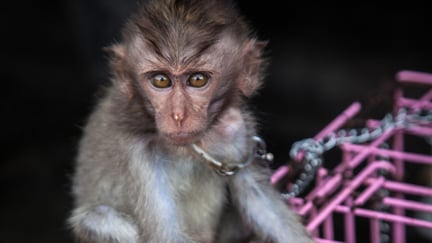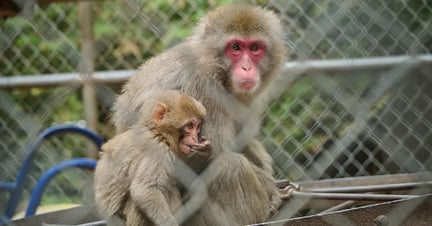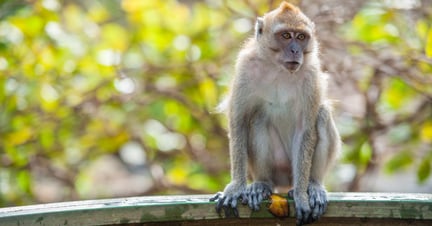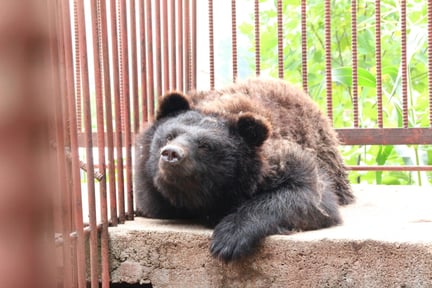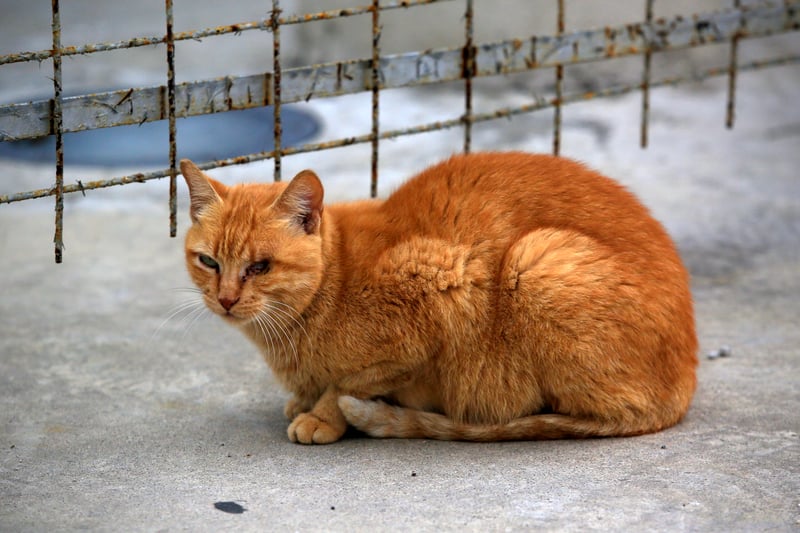
Facebook leads in hosting animal cruelty content, new report reveals
News
Meta platforms are responsible for the majority of reported online animal abuse.
Shocking new data released today reveals the scale of animal cruelty content on social media, with Facebook hosting the highest proportion of reported abuse.
The findings come from The Social Media Animal Cruelty Coalition (SMACC), a network of 34 animal protection organisations, including us at World Animal Protection.
In 2024, the public submitted over 80,000 links showing suspected animal abuse. Of these, 87.5% were found on Facebook.
Monkeys, cats, and dogs feature heavily in the disturbing content.
Endangered animals such as orangutans, gorillas, and long-tailed macaques are also victims of abuse online.
Cruelty goes viral
Facebook and Instagram together were linked to more than 71,000 reports submitted by the public. The most common themes were 'monkey hatred' on Facebook (33.4%) and 'wild animals as pets' on Instagram (33.8%).
SMACC researchers also gathered detailed data on 2,050 links - 1,094 from Facebook and 39 from Instagram. Their analysis showed that Meta platforms are responsible for more than half of the total content studied.
Worryingly, only 36.3% of the flagged content had been removed.
The data shows the type of cruelty varies by platform:
- On Facebook, 24.5% of content involved deliberate physical torture
- On Instagram, 35.9% of content featured animals being used for entertainment
The researchers identified 53 species in the flagged videos, representing nearly 1,000 individual animals on Facebook alone.
Of these, at least 108 belong to species classified by the International Union for Conservation of Nature (IUCN), including critically endangered orangutans and gorillas, endangered chimpanzees and long-tailed macaques, and vulnerable species such as cheetahs and lions.
Primates, especially macaques, appear most frequently, followed by dogs and cats.
Platforms are failing to enforce their own rules
Despite public pressure and existing platform policies, the data shows that harmful content continues to slip through the cracks.
Many social media companies have content moderation systems in place, but enforcement remains weak.
This is especially concerning in light of new legislation that holds tech companies to higher standards.
Online animal cruelty is now illegal under UK and EU law
Under the UK's Online Safety Act 2023, animal cruelty is classed as 'priority illegal content'. Platforms must act quickly to detect and remove this material or face serious penalties, including fines of up to £18 million or 10% of global annual turnover. The law is enforced by Ofcom.
In the European Union, the Digital Services Act (DSA) came into force in 2024. It requires platforms to offer effective reporting tools, act swiftly on flagged content, conduct risk assessments, and undergo independent audits. Penalties for non-compliance can reach 6% of global turnover.
Other countries are following suit.
For example, Taiwan has updated its Animal Protection Act to make cooperation with law enforcement mandatory for social media companies when investigating online animal abuse.
Animals deserve better
Tricia Croasdell, CEO of World Animal Protection, said:
It’s important that social media companies take this seriously and look at improving content moderation systems and enforcement policies.
“Policies should explicitly define and prohibit all forms of animal cruelty and ensure stronger enforcement, especially against repeat offenders and organized abuse networks.
Animals deserve better. We must keep reporting this content to the social media platforms. We do not ignore cruelty or abuse.
Report It! Week urges public to take action
This data release marks the start of Report It! Week (23–30 May), a global campaign aimed at raising awareness of online animal cruelty and encouraging the public to take action.
Reporting matters.
By increasing pressure on social media companies and highlighting the severity of the issue, users can help reduce the spread of cruelty online.
Related content
Meta rewards monkey abusers despite policy violations
News
Social media giant Meta is under intense scrutiny for enabling and rewarding content featuring disturbing primate abuse on its platform, Facebook.
YouTube Fake Rescues
In 2021, a World Animal Protection investigation exposed the shocking scale of a worrying new craze on YouTube – the rise of videos depicting fake animal rescues.
Monkey Abuse: The Cruelty Behind Cute TikTok Videos
Blog
Discover the cruel truth behind cute macaque monkey videos on social media, and find out what you can do to stop this abuse.


